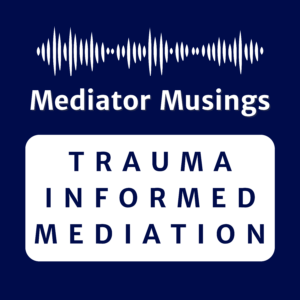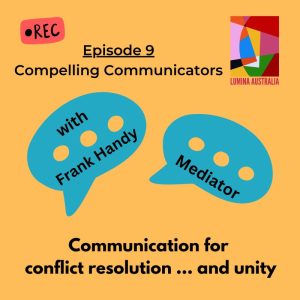
Mi Independent Complaint Handling Service for RTOs
Information about Mediation Institute’s Independent Complaint Handling Service for RTOs
The bill was passed by NSW parliament to amend the Children and Young Persons (Care and Protection) Act 1998 and the Adoption Act 2000. The main reason for the amendments were to make further provisions in relation to the care and protection of children and young people and for the provision of services to them. The amendment came into effect on the 4th February 2019.
The important provisions are to clarify and require alternative dispute resolution rather than heavy handed legal action in cases that are not urgently high risk.
The objectives of the act and the role of the department have been clarified in section 16.
A new subsection 2 in Section 17 authorises the prioritisation of requests for services for children and young people at risk of significant harm by government departments, agencies and non-government agencies in receipt of government funding.
(3) (a) to promote the development of co-ordinated strategies for the care and protection of children and young persons and for the provision of support services directed towards strengthening and supporting families (including the provision of prioritised access to support services to children and young persons at risk of significant harm and to their families), and
(b) to co-ordinate the provision of services for assisting young persons leaving statutory out-of-home care, and
New (c) to co-ordinate the early provision of alternative dispute resolution processes for children and young persons at risk of significant harm and their families who wish to participate in those processes.
Note. Section 37 (1A) requires the Secretary, on determining that a child or young person is at risk of significant harm, to offer these processes to the family of the child or young person (subject to certain exceptions) before seeking care orders.
The following text has been added.
If the Secretary determines that a child or young person is at risk of significant harm, the Secretary must offer alternative dispute resolution processes to the family of the child or young person (subject to certain exceptions) before seeking care orders.
This recognition and encouragement to attempt to involve the family in working out a plan for the care of their at risk child is a very positive step in the right direction.
The second addition to this section is
The Secretary may request government departments or agencies, or non-government agencies in receipt of government funding, to provide prioritised access to services to children or young persons who are at risk of significant harm and to their families.
The focus on Alternative dispute resolution is further reinforced in section 37 by changing the language from “is to consider” to “must consider”
(1) In responding to a report, the Secretary must consider the appropriateness of using alternative dispute resolution processes that are designed:
(a) to ensure intervention so as to resolve problems at an early stage, and
(b) to reduce the likelihood that a care application will need to be made under Chapter 5, and
(c) to reduce the incidence of breakdown in adolescent-parent relationships, and
(d) if an application for a care order under Chapter 5 is made, to work towards the making of consent orders that are in the best interests of the child or young person concerned.
Also insert the following
(1A) If the Secretary determines that a child or young person is at risk of significant harm, the Secretary must offer alternative dispute resolution processes to the family of the child or young person before seeking care orders from the Children‘s Court.
(1B) Subsection (1A) does not apply in relation to the family of a child or young person if the Secretary forms the opinion on reasonable grounds that their participation in alternative dispute resolution processes would not be appropriate due to exceptional circumstances.
(1C) If the Secretary becomes aware of criminal proceedings or a police investigation that may be compromised if alternative dispute resolution processes are offered under subsection (1A), the Secretary:
(a) must seek the advice of the Commissioner of Police as to the likely effect of the processes, and
(b) is not required to offer the processes if the Secretary determines that it is not appropriate to do so after taking the advice into account.
(1D) Subsection (1A) does not affect the Secretary‘s obligation under section 34 (1) and is subject to sections 35 (1) and 36.
(2) Participation in any such alternative dispute resolution is voluntary.
Note : Within this provision, models for conferencing may be developed to accommodate the unique requirements of a community (whether cultural, geographic or language), the complexities of the case, or the nature and severity of the abuse suffered by the child or young person.

Information about Mediation Institute’s Independent Complaint Handling Service for RTOs

Even a marketing director can learn to mediate.By Roanna, a student on the AMDRAS course. So here we are — one week into AMDRAS (Australian

Mediation Institute FDRP Supervision and Support panel is designed to improve visibility for professional FDR supervisors and make establishing supervision relationships easier.

The government in NSW is directing the department to make every effort to engage the family via family dispute resolution as long as there is not extreme levels of urgency or risk to the children in question.
That is going to be very good for Family Group Conference Facilitators and families as well facilitated Family Group Conferencing is a very child inclusive and empowering process.
Find out more about Family Group Conference Facilitation Training

Listen to our Trauma Informed Mediation podcast for insights on how to make mediation safe and supportive for people with trauma loads.

Join Joanne and Geri as they delve into the recent amendments to the Family Law Act impacting First Nations families.

Podcast Recommendation: Compelling Communicators: A podcast brought to you by Lumina Australia Deep dive conversations revealing golden communication truths from compelling communicators across wide ranging
Mediation Institute now offers membership based support for Family Group Conference Facilitators including complaint handling, access to low cost insurance and professional development.
Professional development includes our Practice Development Mastermind Group, Group Supervision and access to online tutorials with our Family Group Conference Facilitator Training.

Mediation Institute acknowledges the Traditional Owners of country throughout Australia and recognises their continuing connection to land, waters and community. We pay our respect to first nations peoples their cultures, and to the Elders past, present and emerging.
Be aware of cyber fraud. You should contact our office immediately if you receive any email suggesting that the back account details on an invoice have changed, even if that email appears to have been sent from our company.
Our Vocational Training is delivered in partnership with Inspiritive Pty Ltd RTO Code 21178
Mediation Institute Pty Ltd PO Box 16, Loch Sport Victoria, 3851
Tel: 1300 781 533
ABN 43 166 175 962 | NZBN 94 290 510 103 00